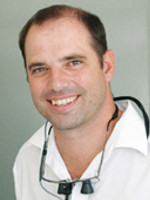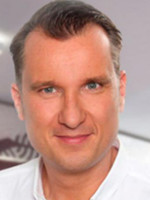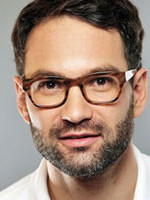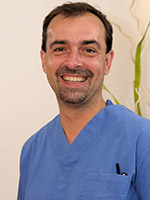Dental prosthetics is a complex of procedures to replace missed teeth. Depending on the number and positions of missing teeth, your dentist can advise different options for tooth replacement. In developed countries dental prosthetics has become a routine; there are about 2.000.000 various procedures to replace teeth are held annually in dental clinics in Germany. Modern methods of tooth restoration aim maximal preservation of own patient’s teeth and sparing replacement of the missed ones. Below we will tell you about the main methods and techniques for tooth replacements Germany.
Tooth Replacement Options
Modern dental prosthetics in Germany offers various solutions to mask a lack of teeth and restore your chewing function.
Removable dental prosthetics
“Removable denture” may sound old-fashioned but, actually, today removable dentures are far from those grandma’s pieces that fall out so easily. Depending on the degree of your tooth loss, you may need complete or partial denture.
Complete Denture
A complete denture replaces the completely missing teeth; it includes two pieces for the upper and low jaws. In terms of placement techniques, complete denture can be:
- Conventional: It is a step-by-step method. A denture can be placed in a mouth of a patient 8-12 weeks after removal of the teeth. Inconvenience of this approach that the patient stays without teeth in a healing period. But it is a safe method allowing good fitting of the dental prosthetics after placement.
- Immediate: A denture is produced in advance and placed immediately after removal of the teeth. The patient can enjoy the full mouth of teeth but, as the jawbones may deteriorate over time, following adjustment may be required.
Partial Denture
A partial denture is used when it is only needed to replace a few missing teeth. It is fixed by a metal framework. Probably, it is not the most comfortable way to replace your missing teeth, but some people choose it as a budget option. Partial dentures also can be used as a temporary tooth replacement.
Custom Denture
Custom dentures are the same complete dentures, but tailored and performed on the state-of-art level. Dental prosthetics in Germany is oriented to this type of dental works pursuing not only functional but also aesthetic purposes. With a custom denture your teeth will have more natural look.
Materials for Removable Dentures
Currently, there is a choice of materials both for a denture base and tooth imitation in dental prosthetics.
The base materials are:
The tooth materials are:
German dentists recommend a combination of resin and porcelain for tooth replacement, as it provides better sitting and more natural look, but it is also the most expensive option. You can ask advice of your dentist to evaluate what is best for you, taking into consideration your budget.
Non-removable dental prosthetics
For permanent tooth replacement you need a base to fix your dental prosthetics. In modern dental prosthetics in Germany dental implants are mostly used option to provide a safe foundation for your restoration.
Dental Implants
An implant is a titanium (mostly) rod placed into the jawbone to provide a base for your dental prosthesis. In case of single missing tooth, it can be a crown; if you have a lack of more than one tooth in a row, you may need a dental bridge. In other cases a complete denture can be secured on implants.
There are a variety of implants depending on design and method of placement; here we can give you only a brief of what we explain in another article Dental implantation.
Based on the time of placing implants can be
- Immediate: An implant is placed immediately after a tooth extraction.
- Delayed: Am implants is placed 2-3 months after a tooth extraction.
Implants also can be:
- One-staged: An implant is non-collapsible and placed in one stage
- Two-staged: An implant consists of two parts; first, a root is placed into the jawbone and, then, after 2-3 months another surgery is undertaken to place an abutment (a base for restoration).
The type of implants and a method of implantation are considered with a dentist based on your examination. In Germany, dental specialists always evaluate pros or cons of every option meticulously to choose the best way of tooth replacement for every patient.
Crowns
A dental crown is a cap to place on an implant to replace missed tooth or on a damaged tooth to cover it.
In traditional dental prosthetics crowns are also used to secure a dental bridge. In this case, they cover the teeth neighboring to the gap. A disadvantage of this type of tooth replacement is that a dentist has to grind the natural teeth before covering them with a crown. With development of implantation, this method has lost its popularity, but it is still used. It can be recommended, when the teeth intended for crowns are badly damaged and covering them will restore their function and appearance.
Dental Bridges
Before implantation has appeared, dental bridges were the most popular permanent dentures: those who did not want to wear removable choose the bridges. Dental bridges are still widely used in dental prosthetics when you have several missed teeth in line, and now they can be secured on implants without damage to healthy teeth. Dental bridges are a practical and safe non-removable dental prosthesis for tooth restoration.
Complete Denture Secured on Implants
It is also possible to secure your complete denture using implants.
The Process of Tooth Replacement
Currently, there are two techniques of dental prosthetics in Germany:
- Traditional: slow but reliable
- Immediate: quick and also reliable
Honestly, we are failed to decide which of them more widely used. You may ask why not to use quick method for all patients if it is also reliable. German dentists will answer you the proper methods depend on your situation. Only after diagnosis, it is possible to say, which of tooth restoration techniques is the best for you.
Diagnosis
In German dental clinics, computed tomography is the main method of diagnosis. Based on 3-D images, your dentist will check all the main factors that can influence your tooth restoration. The most important is the quality (thickness and structure) of your jawbone. If your jawbone is weak and narrow, probably you are a candidate for a traditional step-by-step technique.
Another factor is a presence of co-morbidities. If you have any oral infections, gum diseases or cysts, you first need to eliminate them. Uncomplicated caries may be treated together with restoration.
Traditional Tooth Restoration
Dental prosthesis in Germany using implantation includes the following steps:
- Tooth removal, if needed.
- Bone augmentation surgery, if needed. You also may require sinus lifting.
- Waiting up to 6 months.
- Implant installation.
- Waiting 2-3 months.
- Dental prosthesis placement. Dentures are produced in advances based on your moth examination.
If your tooth restoration does not involve implantation, e.g. you are going to have a traditional dental bridge, everything is simpler. Once you have everything healed in your mouth, you may have your pre-produced denture.
New Teeth in One Visit
If your mouth tissues are healthy, you can have an immediate tooth replacement. After computed diagnostic a dentist will design a restoration project, which includes a surgery plan and design of your restoration. Immediately after this your restoration will be produced using special computer guided compact machines. It may take a few hours. Then, in one session, the dentist performs surgery, install implants and place the restoration that may include crowns, bridges, onlays, etc. It is easy, is not it? And will not cost you more than a step-by-step surgery.
All on for
These strange words mean that you may have your complete denture secured on four implants. Normally, in Germany this procedure is done in two steps: one day for each jaw. The main thing here is to accurately determine the right spots for implant placement. It only sounds easy, but needs a high qualification of a surgeon. Happily, in Germany you should not worry about the quality of dental prosthetics, you restoration will be pre-calculated with a computer.
Why to Have Your Tooth Replacement in Germany
Germany and the quality are synonyms. We say this not out of proud but this is a fact confirmed by years of successful dental treatments and tooth replacements. Dental prosthetics in Germany is highly technologically developed area of medicine with qualified specialists and best material produced in Germany, neighboring Switzerland and other EU countries.
There is no difference in the quality of services in state dental clinics and private dental centers in Germany, thanks German health care quality standards. You should check only for available services and prices that are not low but affordable.
And one more thing, you can combine two things on one: have quality tooth replacement and enjoy German landscape. Germany is a beautiful country with many places to see.
The Cost of Dental Prosthetics in Germany
Here you will find average prices for different dental prosthetics services in Germany. Please keep in mind that prices are approximate and you should ask clinics for quotation.
| Services |
Price |
| Jawbone augmentation |
€600-1.000 |
| Sinus lifting |
€500-600 |
| Dental bridges |
from €2.000 |
| Removable dentures |
| Cheap set |
from €800 |
| Acryl + Hard Plastic Teeth Set |
from €.1100 |
| Resin + Porcelain Teeth Set |
€1.500-2.800 |
| Premium (customer) Resin + Porcelain Teeth |
€2.300-3.700 |
| Dental crowns |
| Composite |
from €900 |
| Porcelain |
€1.200-3.000 |
Interest for denture wearers
blend-a-dent denture adhesives beat statistics on denture wearers from all over Germany!
When asked how dentures affect their lives and how they feel about them, many denture wearers replied that your dentures can have a huge impact on your self-confidence and self-image. At blend-a-dent we believe there is no reason why a denture should change your life forever.
55% of German denture wearers said they had to develop new habits and 31% admit to being embarrassed about the denture. Most denture wearers lose confidence because the dentures do not feel safe in the mouth. Therefore, they are reluctant to chat, laugh with friends, or eat in public. But if the full or partial dentures stay securely in place all day, there is no reason to change their behavior. You can just behave as you normally would and no one will notice the difference. Did you know that the strongest of the denture adhesive creams, Duo Kraft, gives you 10x the bite force (hold) than you would have without adhesive cream. It is also clinically proven to work for up to 13 hours! This is because the long-lasting adhesive cream creates a strong bond between the denture and the gums. So you don't have to worry about the prosthesis moving throughout the day. You will feel safe and enjoy the simplest things without being aware of it - you may even completely forget that you are wearing dentures! Find out more about blend-a-dent crumb protection adhesive for dentures here. 46% say they avoid certain foods. The most common reason for this is the concern that chewing will cause the denture to slip and traces of food to get stuck under it. The most common problem facing dentitionists when eating certain foods such as seeds, nuts or fruits is that small pieces of food can get under the prosthesis. Not only could this be noticed by others, it could also be the cause of bad breath or gum disease if these food remnants are not removed properly, if you feel that you need to rinse your denture several times a day to clear it of debris hold or if you have aching or inflamed gums, switching to blend-a-dent adhesive creams for dentures can be the solution. Try our Duo Protection or Crumb Protection variants to build the largest possible barrier against food residues. Our creme protection adhesive has an ultra-fine precision tip so that the adhesive cream can be applied in a continuous, uninterrupted protective layer that sits on the edge of the prosthesis and thus prevents that food scraps get underneath. Dentures can be a social barrier. 21% of German denture wearers say that they avoid talking to, kissing, and that they generally stay away from social events. Dentures do not mean the end of your social life - far from it! One of the key factors that dentures can affect your life is that your saliva may no longer reach the hard-to-reach areas in your mouth where it would normally perform a cleaning and moisturizing function. This can cause bacteria to spread, a major cause of bad breath. However, products like blend-a-dent Duo Protective Denture Adhesive Cream offer fantastic hold and antibacterial performance that lasts up to 6 hours. So you can stay relaxed even in the most intimate social situations and without worrying about bad breath or slipping prosthese



.jpg)






































































 Loading ...
Loading ...


